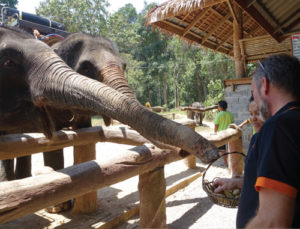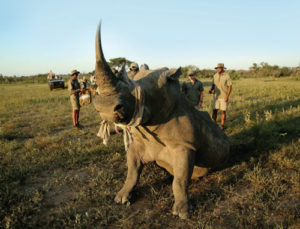Raini Hamdi rounds up good animal welfare practices in the travel sector.

Buffalo audits elephant camps
Buffalo Tours has completed an audit of 38 elephant camps in Thailand, Malaysia, Indonesia, Laos, Cambodia and Myanmar, of which only 20 camps passed its welfare and safety requirements.
Camps were graded with six classifications – Excellent Approved, Great Approved, Good Approved, Good Approved With Caution, Improvement Needed and Unacceptable – with the bottom three not recommended or sold by Buffalo. It has sent assessments to all elephant camps to maintain their positive aspects and improve negative points.
“We are now confident to advise our global partners like Flight Centre, Vakanties, Wendy Wu and Topdeck where they should send their clients,” said Graham Harper, educational travel manager and chairman of Buffalo Tours Responsible Travel Advisory Board.
SpiceRoads stops elephant rides and shows
SpiceRoads has become the first Thai tour operator to join over 100 travel companies worldwide committed to stop elephant rides and shows. It has signed the elephant-friendly tourism pledge with World Animal Protection Thailand, under the commitment to offer elephant experiences from only those operations with a high standard of elephant welfare and conservation, with responsible viewing of elephants in wild or semi-wild habitats, as well as proactively communicating this commitment to protect elephants to their customers, and encourage elephant-friendly tourism.

andBeyond dehorns rhino
Luxury travel company andBeyond has dehorned all the rhinos at its Phinda Private Game Reserve in KwaZulu-Natal as a temporary measure to safeguard the population and relieve the pressure faced from poaching.
The mass dehorning, which andBeyond said is similar to cutting one’s nails, was safely carried out by expertly trained veterinarians. It has no known side effects, with little change in the behaviour of dehorned rhinos.
andBeyond will re-evaluate the poaching situation and make the decision about whether it is necessary to repeat the dehorning process in 18 to 24 months.
ABTA drafts global welfare guidance for animals in tourism
The UK’s leading travel association ABTA, in partnership with the Born Free Foundation and with inputs from 200 individuals and organisations worldwide, has come up with a Global Welfare Guidance for Animals in Tourism, the first report of its kind that seeks to establish concrete guidance for welfare best practice across a broad range of animal interaction experiences.
Practices that are blankly considered unacceptable today are detailed, such as elephant polo, ostrich riding and crocodile wrestling. Elsewhere, detailed specific guidance is given on the treatment of animals like dolphins and elephants in captive environments, wildlife viewing and working animals.
This article was first published in TTG Asia, August 5, 2016 issue, on page 22. To read more, please view our digital edition or click here to subscribe.



















